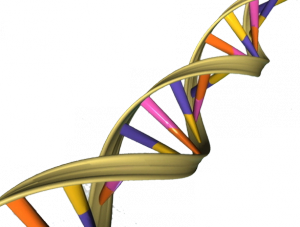Genetic counselling combines education about genetic conditions with support for individuals and families affected by these conditions. The field represents the translation of empirical genetic knowledge to everyday healthcare (American Medical Association [AMA], 2010). This is meant to assist the clients understand and adapt to the diagnosis of a genetic condition in the family, its implications, and make informed decisions (Centre for Genetics Education, 2012). Diagnostic, carrier, predictive and pre-symptomatic genetic testing options are also provided when appropriate (Centre for Genetics Education, 2012).
Genetic counselling is a family-focused service that considers the effects of the genetic condition on the whole family, not just the referred individual, and provides support and appropriate resources to all who are interested. Genetic counselling remains respectful of the clients’ culture, language, traditions, lifestyle, religious beliefs and values (American Board of Genetic Counseling [ABGC], 2007).
In a clinical setting, genetic counselling is beneficial to individuals and families with a high risk of either having, or developing, an inherited condition. Examples include a family history of cancer (or other inherited condition(s)), a increased chance of having a child with a genetic condition, or for those interested in prenatal testing because of an anomaly or other problem found during pregnancy.
Major areas of genetic counselling include prenatal, pediatric, adult and cancer genetics. For example, a client may be referred to genetic counselling if a possible genetic risk is discovered through regular prenatal screening or testing. Pediatric genetic counselling involves seeing families following the birth of a child with a known genetic condition, like Phenylketonuria (PKU), or medical concerns for a genetic condition. Adult genetic counselling might include seeing someone with a family history of a genetic condition, such as Huntington Disease, who is interested in considering the option of genetic testing. As well, individuals or families could seek genetic counselling to discuss their personal or family history of cancer.
Other specialty areas in genetic counselling include cardiovascular disease, metabolic disease, neurology, ophthalmology, hematology, infertility, pharmacogenetics, and genomic medicine (National Society of Genetic Counselors [NSGC], 2012b). This is not an comprehensive list. The field is continuously growing and changing over time. Some genetic counsellors do not work in a clinical capacity. They may work in genetic testing laboratories or as part of clinical research studies, or even in the business sector using their genetics and communications expertise.
Many physicians can refer their patients for genetic counselling, including primary care physicians, obstetrician/gynecologists, gastroenterologists, neurologists, oncologists, cardiologists, ophthalmologists, and pulmonologists (NSGC, 2012a). Again, this is also not a complete list.

